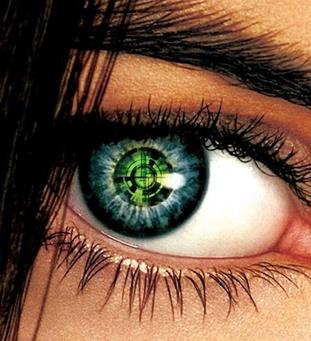
Last week I met up with someone professionally. Part of the conversation was an exploration of backgrounds on both sides. We probed and parried for a little bit; not confrontationally really, but nonetheless there was a searching going on. Once we got comfortable with whatever baseline was set on both sides, we proceeded to explore deeper issues. It was a good meeting, but I walked away from this with some ideas percolating. The central question was: what if I didn’t have to spend that ‘ramp’ time from our conversation, roughly about 5-15 minutes? What if we could somehow skip that step of making each other aware of our pertinent history and credentials and proceeding to exploring the issues we were really interested in? If you multiplied this efficiency by billions of conversations, how much better would our world be?
What I envision is a system that puts a virtual overlay on any person you meet. It tells you the basics, name, age; other relevant information like education, kind of work, sector, employer, tags about the kind of experience and expertise they have and about what they are looking for in the future. This system puts context on a person and lets you get to the good stuff faster. It answers questions like: what is this person good at, what do they represent to me? etc.; allowing you to visualize the intersection of your person and that person and the possibilities that could mean. This is essentially what we do anyway when we meet anyone – explore the future possibilities of the relationship – we’re constantly trying to answer the question of whether this relationship is going to be important or not. Or pleasurable or not. Or easygoing or not… you get the drift, we prognosticate the meaning of the intersection of selves constantly.
I call this Augmented Person Reality (APR). It would function roughly in the same way as the current augmented reality technology, except it would work on people. The first time I articulated my thoughts on this fully was with my good friend Spencer Holt (VCIC team, natch) and he had one interesting question: “would this prevent people from connecting? Essentially throw up barriers instead of breaking them down?” At first my response was: “no it won’t”. The way I would personally use this would be to accelerate my own ability to connect. But I suppose that is probably naïve and self-referential. Technology has specific social consequences and this would make it much easier to ostracize people or to avoid people – things that people do already today in social interactions, except that APR would make it much easier to do. As such some thought has to be given to exposing information like race, age, and specific bits of history. People would have to have control over their information or even the choice to participate in this kind of system (the same way you can choose whether or not to have a Facebook account or who you can see your information on Facebook). In fact you could have a ‘mysterious’ mode that people could enter when they feel the fancy, forcing other to discover them old school (handy for dating situations). Employers would need to agree to respect people’s choice not to expose this data and not use its absence as a demerit. And so on.
However for purely social applications this would be a boon to meeting new people and spending less time in the ‘uncertain territory’ and getting to connecting to the essence of people on a deeper level. People would have the opportunity to evolve what they expose of themselves as they continue on life’s journey, constantly evolving their representations of themselves.
At an uber-level, I believe we need deeper social solutions to help you connect to people you’ve met who you don’t know yet, but potentially want to know. I’m doing some deep thinking here, stay tuned.

2 Responses
So like minority report except better?
Somewhat. the key pivot here is control and what is possible today. What would this look like if you had control over your own information and when and how you shared it? I think that would force it into social applications. Think Facebook but outside the Facebook walled garden. What would this look like if it was executed on phones, tablets and browser? I think a lot is possible today even without sci fi like tech.